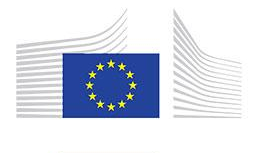
In 2020, the European Commission[1] highlighted that 53.3% of examined environmental claims in the EU were found to be vague, misleading or unfounded, and 40% were unsubstantiated. The highly anticipated European Commission (EC) proposal on Green Claims covering common criteria against greenwashing and misleading environmental claims is out!
The proposal aims at helping consumers to make informed choices based on reliable information about the sustainability of the products they want to buy. “Under today’s proposal, consumers will have more clarity, stronger reassurance that when something is sold as green, it actually is green, and better-quality information to choose environment-friendly products and services”, explained the EC in an official press release.
KEY POINTS YOU SHOULD KNOW:
A bit of context: In March 2022, the European Commission published a proposal on empowering consumers for the green transition to update the EU consumer rules to empower consumers and ensure they can take informed and environment-friendly choices when buying their products. Today’s proposal complements the previous one by providing more specific rules and new criteria to enable sustainable choices.
Green Claims proposal: To face this problem, the European Commission is proposing new rules to stop companies from making misleading claims about environmental claims and allow consumers to make informed choices.
1-. Independent verification and scientific evidence: The proposal sets that before companies communicate any of the covered types of “green claims” to consumers, such claims will need to be proven with scientific evidence and be independently verified. For example: if a company wants to claim the packaging for their product is made of “60% recycled plastic”, it would have to be proved and verified.
– Who will set the criteria? EU countries would be in charge of setting up verification and enforcement processes, to be performed by independent and accredited bodies. This means that each country will have flexibility, given the proposal is a directive that countries can adapt before transposing it into their national law, rather than a regulation that would apply immediately across the EU.
– What happens to business based outside the EU? If their product is going to be addressed to EU consumers, it would have to respect the requirements.
2-. Not all claims are covered: The proposal marks specific “green claims”, such as “ocean friendly sunscreen”, “bee-friendly” or “packaging made of 30% recycled plastic”. It only concerns claims that are not currently covered by existing EU rules.
3-. Clear requirements: Claims or labels that use aggregate scoring of the product’s overall environmental impact, will no longer be permitted, unless set in EU rules.
4-. Environmental labels will be regulated: The proposal will also regulate environmental labels and their proliferation of such labels in that new public labelling schemes will not be allowed, unless developed at EU level, and any new private schemes will need to show higher environmental ambition than existing ones and get a pre-approval to be allowed. Moreover, environmental labels must be reliable, transparent, independently verified, and regularly reviewed.
Penalties: EU Member States shall lay down the rules on penalties applicable to companies that does not meet the requirements, ranging from fines to confiscation of revenues, and temporary exclusion from public procurement processes and from access to public funding.
Next steps: The European Parliament and the European Council need to approve the initiative for it to take effect.
For more information: https://environment.ec.europa.eu/topics/circular-economy/green-claims_en
[1] https://eur-lex.europa.eu/legal-content/EN/TXT/PDF/?uri=CELEX:52022SC0085
